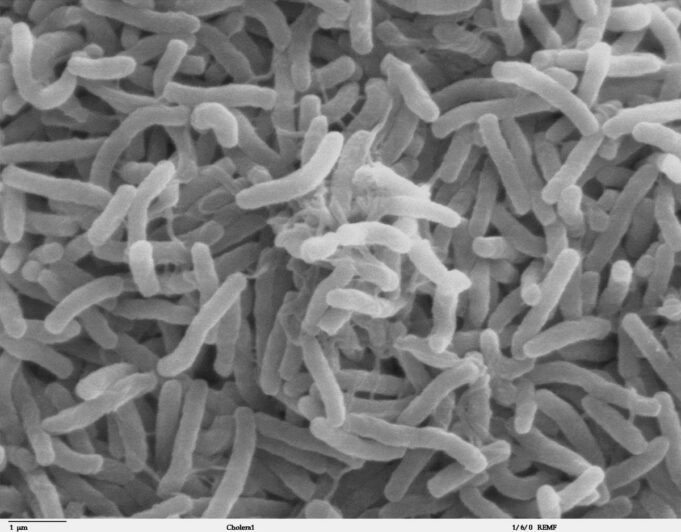The Nigeria Centre for Disease Control and Prevention (NCDC) has listed Zamfara, Cross River, Adamawa and Ogun as states with the highest cholera cases in the country.
NCDC’s Incident Manager, Cholera Technical Working Group, Dr. Sebastian Yennan, said this at the monthly meeting of the Water Sanitation and Hygiene (WASH) in Emergency Working Group on Tuesday in Abuja.
According to him, the cases are updates from the centre’s Epidemiology week 39, saying efforts were ongoing in providing response commodities to affected states and in the country.
Yennan said NCDC’s intervention through cholera case management was carried out in partnership with the WHO by distributing infection prevention and control kits, WASH kits, chlorine powder among others.
This intervention, he noted, was being prioritised in the four states, saying the kits distributed could also be used in emergency situations like the Lassa fever and diphtheria outbreaks.
Teacher docked for flogging female student
Also, Mr. Dapo Akingbade, a representative from the National Emergency Management Agency (NEMA), said following release of excess water from Lagdo dam in Cameroon, 13 states have experienced flooding.
According to him, 171,545 persons were displaced in affected states, property and farmlands destroyed, with no fewer than 45 deaths.
Akingbade while giving an update as at October 7, said the agency had commenced assessment of flood situation in Adamawa, with the activation of the emergency operation centre for coordination of interventions.
Dr. Edwin Isotu-Edeh, National Consultant, Public Health and Environment, WHO Nigeria, said there was need for all partners to level up their investments for the WASH sector.
He said by investing in the WASH sector, cholera cases would reduce, citing an example of Cross River State which had a case fatality rate of 21 per cent, but reduced through investment and the One Health approach.
Earlier, Mr. Ibiyemi Olu-Daniels, a Director, Federal Ministry of Water Resources and Sanitation, noted the need for states to coordinate, take ownership of their challenges and not rely solely on development partners in emergency situations.
He said the ministry would continue to support states through advocacy and coordination, urging the states to take responsibility on cholera preparedness and response plan.
- Tinubu appoints Jim Ovia as Education Loan Fund chairman - April 26, 2024
- Ondo 2024: Akeredolu’s ex-deputy emerges PDP guber candidate - April 26, 2024
- Again, JAMB extends 2024 Direct Entry registration - April 26, 2024










